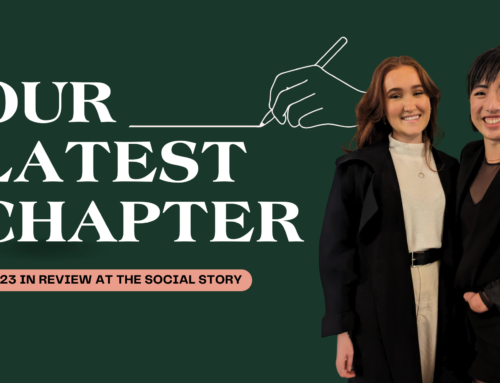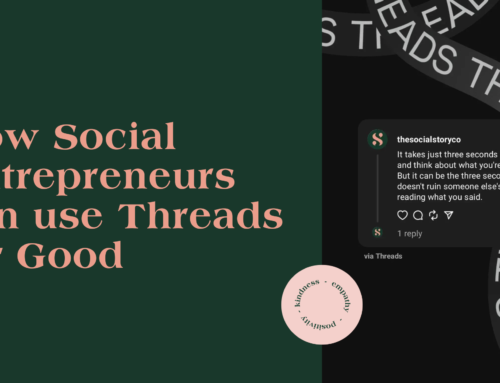Key Takeaways:
– Social media platforms can no longer be passive in regulating their content
– Facebook have monopolised data and advertising dollars more than we can imagine
– Social media actions are not enough – we need to do more as individuals and businesses
For the month of July, a growing list of companies – including big shots like Coca Cola, Patagonia and Verizon – will be pausing any advertising on Facebook and Instagram in the name of stopping hate. The #StopHateforProfit campaign urges businesses to stand in solidarity and send a strong message to Facebook on allowing false information and hatred to persist on their channels. It is the latest unified response against racism that was ignited by outrage over the murder of George Floyd and too many Black people at the hands of the police.
Along with the global pandemic, this has become a time of reckoning for social media platforms and the role they play as informational platforms. No longer can they stand on the sidelines and be passive in the way content – and more specifically, content that is harmful and incorrect – can easily spread on their platforms. Some steps have been made – with Twitter taking on fact-checking and Instagram trying to prioritise reliable sources about COVID-19.
But this coordinated affront to Facebook is a culmination of frustration for Zuckerberg’s refusal to acknowledge his platform’s role in shaping public discourse, often to many’s detriment. No matter how much we lament the fact, many people rely on social media to get their news. And we’re not stupid. A Pew Research Centre report from October 2019 showed a whopping 88% of Americans realise that social media platforms have a role in the sort of news they see. So it’s no surprise that we are demanding more responsibility on the part of social media platforms.
Sure, we can’t just leave it up to the big dogs and think our work is done there. Every individual has to take responsibility to becoming more media literate and critical over the content they consume through social. But with all the technology to send you programmatic ads or turn your face into a potato through AI, surely these companies have the capabilities to ensure that their feeds aren’t hotbeds for vitriol and falsehoods.
So we’re frustrated and want to send a message. Great, a boycott and look at the names we’ve got. Sure, we might expect it out of the likes of socially-conscious Patagonia and Ben & Jerry’s but they’ve even got Hershey’s and Unilever coming into the mix. This is bound to send a strong message and even Zuckerberg addressed it. Facebook will now allow US users to turn off all political advertising and taking more steps around highlighting reliable sources and avoiding voter suppression ahead of the country’s elections in 2020.
But the question we must ask ourselves is whether this is enough? And will a month-long boycott do enough to demand the greater change we need? And the simple answer is no.
But the question we must ask ourselves is whether this is enough?… And the simple answer is no.
How did we get to this point?
For too long, Zuckerberg was able to rise in the ranks relatively unchecked. I mean, remember the days of Myspace? Facebook came and took away it’s thunder and we all pondered about what was next to take Facebook’s place. But it never went away. Slowly, our reliance on the platform grew.
As the years went by, the algorithm was introduced and evolved to lessen brand’s impacts. As of late 2019, average reach was down to just 5.5% of page followers. No matter how high your follower count is, if people just aren’t seeing your post, there really is no point. So of course, you turn to paid media. Even a $5 boost to a post can get it in front of more eyes, but those little $5 investments have worked to strengthen Facebook’s power. And they double down on it. Their local offices around the world aren’t dotted with creative technologists or social media specialists that can help you navigate the ever-changing platform. They are sales teams, working with brands and agencies trying to sell in the latest format or targeting option Facebook want you to invest in.
And what was the cost? Facebook is a commercially-led team. As much as they try and parade a desire for free speech, they have had no interest in fostering a healthy discourse on the platform. And between the Cambridge Analytica scandal, the need for clear information on the pandemic and a call to do better in diversity, this is a reckoning for not only how we use social media, but how social media itself operates. Individuals, brands and the platforms themselves have to accept the responsibility to make the online conversation better.
Will it work?
99% of Facebook’s revenue comes from advertising dollars. A dent in their revenue and the media coverage of this boycott is surely going to make Zuckerberg turn his head. And his actions to try and address it are proof that we’ve got his attention. But what happens with July ends? The reality is that a one-month pause in revenue, even with the biggest brands on board, will hardly make an irreversible dent in the company’s bottom line. Zuckerberg still controls the decisions of the company, without the accountability of a board of directors or shareholders that can make him change his ways.
His dismissal of his role in things like the Cambridge Analytica scandal were clearly shown in his Congressional Hearing. Beyond just his refusal to take responsibility, it never implored him to do anything to change things moving forward. If Congress can’t scare him into action, what really will?
This requires a long, sustained effort to send a message Zuckerberg cannot just put a few bandaid solutions up and call it a job well done. Real change must also go beyond these moments of solidarity such as #BlackoutTuesday or even this #StopHateforProfit campaign. And if we go back to the core mission of the campaign to stop hate, it will take more than Zuckerberg flagging Trump’s latest tweet as misleading to actually reach our goals.
What can we do?
We all have a part to play to stop hate. Having Facebook take action would send ripple effects down into every user’s experience. But even if that does happen, it does not absolve us in our need to do more to educate ourselves and curate a better conversation online.
1. Reimagine organic content
Boycott advertising on Facebook – if it makes sense for you. It’s a step in the right direction to call out Zuckerberg for his inaction and understand our power as advertisers. But in this time away from advertising budgets, organic content is going to be more important than ever.
If you cannot attract your audience through paid, what can you reach them with? And the answer is value.
Here at The Social Story, we’ve always prioritised organic content for the advantages it brings to prolonged engagement with the audience. Paid definitely gets you the big numbers but for a loyal fanbase, focusing on delivering value and connecting with your audience in a more meaningful way has always been our priority.
Giving your audience a reason to actually want to see your content, like it and eventually have it rise in the algorithm preferences is how you make a loyal audience and not just one who will click one ad and forget your brand name by the next campaign you run.
So go back to basics – to even before we had paid media – and really hone in on your why. We have a sneaky suspicion that having to work a little harder with your content, removes the impetus for just making money, but giving audiences more reasons to believe; a story, if you must.
2. Invest in community management
In the absence of better quality controls platform wide, all businesses on Facebook should invest in community management. Monitoring comments online isn’t just about responding to inquiries or identifying problems as they come. A daily interaction with your customers through the comment section is a great way to understand their sentiment and the pain points that actually matter to them.
But it is also often the only way to ensure hate does not continue to spread. Nuance, sarcasm and even typos cannot be picked up by filters aimed at banning out hate speech and profanity. It often falls into the responsibilities of a community manager to monitor these comments and ensure conversation respects free speech while not crossing the line of hate speech nor defamation and misinformation.
As a company, we tackled this when working with a news organisation in Australia to monitor their comments section. It’s a fine line to allow comments in the name of free speech but also hide or report those that could prove problematic, were spreading conspiracy theories or personally attacked other commenters. And we’re not gonna lie, the job definitely kept us busy.
If you want to learn more, contact us about your community management needs.
3. Pull up for diversity
The conversation that has spurred the #StopHateforProfit campaign has also called us to shake up the very institutions that brought us to this point of hatred. Calls to diversify your feed and celebrate more minority-owned businesses and influencers are long overdue. But this is a change that cannot be made from the social platforms. This one’s on us.
First, as individuals, we should audit the pages we follow and ensure we are getting different perspectives and voices so that we are constantly learning and challenging our long-held ideas of the cultural norm. In Australia, we’ve been particularly grateful for @lumela.co and @blakbusiness that are helping to promote minority-owned businesses and voices in our country.
Second, as businesses, we have to look inward. How do our internal structures inform the content we put out? If we do not have a diverse team or question ourselves before we post, are we positively contributing to a conversation that we might not understand? @AussieWOC are doing amazing things to not only celebrate female influencers of colour with which brands and agencies can collaborate; but also hold companies accountable for showing more diverse faces.
Take the pledge to #StopHateForProfit and Stop Hate online altogether. Demand change now.
Photo by Morning Brew on Unsplash






[…] portion of the #BlackLivesMatter protests while many were still in lockdown. We saw that with the coordinated boycott of Facebook to demand more measures against hate speech. These feeds are people-powered, if the people know […]
[…] Look, we have to take this all with a grain of salt. We’ve been down this road before. Not even celebrities like Kim Kardashian jumping on a ‘boycott’ trend was enough to snap Zuckerberg straight into action to Stop Hate for Profit. […]